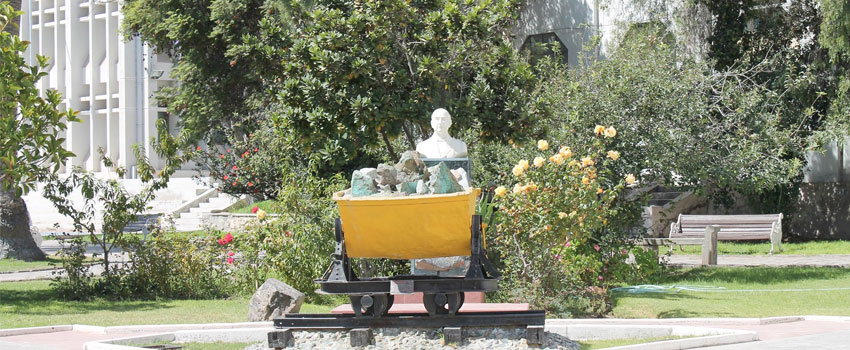
The initiative corresponds to the second 6-year stage of the Corfo Program “Implementation of the Strategic Plan - New Engineering”.
The Faculty of Engineering of the ULS reported that the Corfo Technological Capabilities Subcommittee, in session No. 302 held on Tuesday, November 13, resolved to approve the application of the project: “FIULS 2030” nominated for the “Implementation of the Plan” Program Strategic - New Engineering for 2030 regions”.
Corfo's "New Engineering for 2030 - Regions" Program aims to improve the training process and future development of professionals in Chile, and to consolidate Engineering faculties and transform them into national and international benchmarks, improving their academic training rates, competitiveness and connection with the environment. The Program considers three stages, the first of which was developed by FIULS between December 2016 and September 2017 jointly with the University of Atacama, through the Ignacio Domeyko Engineering Consortium. In the second stage of Implementation of the Strategic Plan, in which the FIULS applied individually, six years are considered for its execution. “FIULS 2030” awarded MM$1.712 for the first three years of implementation. After the third year, the development and objectives of the project must consider its sustainability, as well as a new application for Corfo funds. The third stage is considered the monitoring of the Strategic Plan until 2030.
In this way, the Faculty of Engineering of the U. de La Serena seeks to become a national and international benchmark in R&D&I&E, with emphasis on mining, energy and sustainability, involving the different actors and sectors of the society, to contribute to the formation of world-class human capital.
Design of the “FIULS 2030” Strategic Plan
In the first stage of designing the Strategic Plan, a diagnosis of the Faculty was carried out, where background information on the educational model was incorporated, showing results and indicators in the areas of the curricular framework, innovation, entrepreneurship, internationalization, competitiveness, networks, among other relevant aspects.
After that, the project focused on taking as a reference the management developed by those engineering schools of the most prominent universities in Europe and the United States, considered the best in the academic and training field, with the purpose of adopting and adapting their methods and strategies in specific axes such as Human Capital and Change Management and Curricular Harmonization and Technological Postgraduate Degrees. Added to these are Applied R&D and Linkage with Industry; Technology Commercialization and Technology-Based Entrepreneurship; International Alliances and Mobility and Associative Governance and Synergies. The FIULS has established the existing gaps between the Faculty and the universities visited, antecedents that have been used as input for the formulation of the Strategic Plan. The above, for the direct benefit of academics, students and the regional environment.
To carry out the final phase of the project (benchmarking and strategic plan), the support provided by LASPAU (an organization affiliated with Harvard University), which coordinated, managed and accompanied the international missions, was of special importance. In addition, it validates and supports the work carried out in benchmarking and the Strategic Plan.
Expected results
In recent years, innovation and knowledge-based entrepreneurship have been strongly promoted. Within this framework, FIULS 2030 is constituted as an educational, innovative and entrepreneurial ecosystem that uses technology as a vehicle to produce an impact in the national and international market, for which we have worked to build and understand the important direct collaboration efforts to the achievement of such objectives.
“FIULS 2030”, with the support of Corfo, hopes to increase its activities with national and foreign industry players, increase the international recognition of its Faculty of Engineering, add professionals with practical experience in the development of innovations and new study plans in undergraduate and postgraduate, in order to achieve international standards in engineering education, to address R&D&i&e and to have more qualified human capital in the area of engineering.
There will be an institutional management system integrated into a technological platform to strengthen its academic programs and transform them into engines of innovation and entrepreneurship. The system will have a clear seal and will provide a continuous search for better graduate profiles, study plans and learning methods, tools that will provide global solutions with better and more opportunities for the new generations of engineers that the country requires.
In addition, clear quality assurance policies and mechanisms will be strengthened in the training process as a result of the strong commitment of the university and Faculty authorities, which will allow the development of R+ projects in the medium and long term. D+i+e in various engineering disciplines, as well as having a support structure for the development of research and postgraduate studies, in addition to having greater quality scientific productivity and focused competitiveness.
Added to this is the link between academia and industry, the development of R&D&i&e and territoriality, that is, greater availability and use of resources, as well as the strengthening of the productive chain. Now, generating the aforementioned change, as well as the expected results and impacts, requires interaction between those who will benefit directly or indirectly from this project. This is the reason why “FIULS 2030” has the support of an Advisory Council, whose main function is to ensure the quality and relevance of the program in all its stages.
Source: Faculty of Engineering
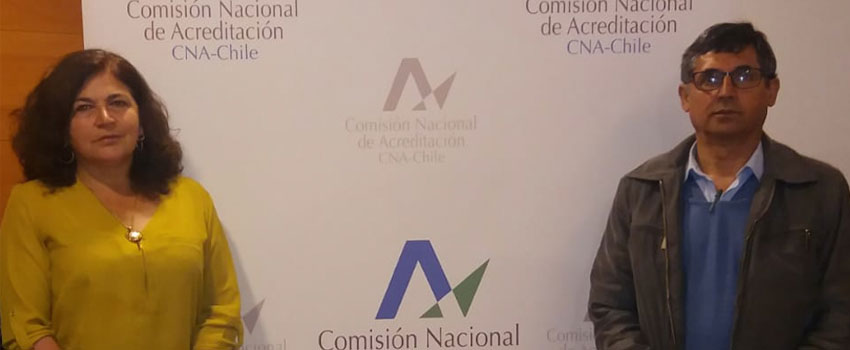

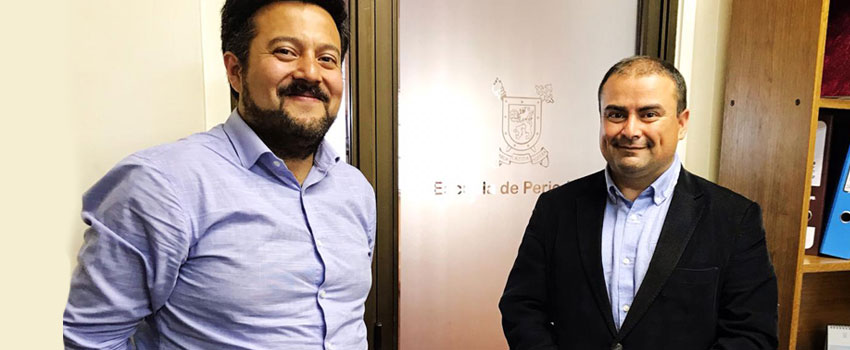
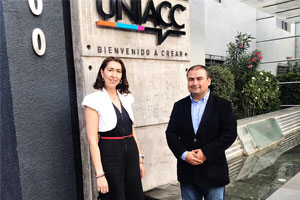 “It was concluded that the basis of journalism remains the same because in the face of this entire media emergency, what is needed is quality media. Therefore, the comparison of sources, the writing of news and headlines, in the three universities came to the conviction that we do not have to invent a new journalism, what we have to see are the contents and use what technology allows us” Muñoz said about the conclusions he reached with the other directors.
“It was concluded that the basis of journalism remains the same because in the face of this entire media emergency, what is needed is quality media. Therefore, the comparison of sources, the writing of news and headlines, in the three universities came to the conviction that we do not have to invent a new journalism, what we have to see are the contents and use what technology allows us” Muñoz said about the conclusions he reached with the other directors.

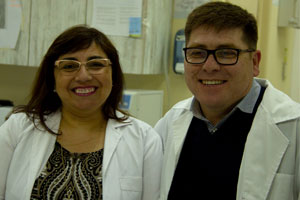 Botrytis cinerea is a pathogenic fungus that mainly affects Vitis vinifera, that is, table grapes and pisco grapes, at a regional and national level. To stop its spread, chemical substances known as antifungals are used; However, there is evidence that this fungus has developed resistance to applied chemicals. It is in view of the limited information that farmers have regarding this issue that researchers have set themselves the goal of bringing the results of their studies to the community. "The idea is to be able to monitor and give people in the fields the information so that they can take appropriate measures. This will have a direct application to the economy of the region, because farmers are not going to lose so much money using chemicals that they already have." They are not useful for their crops, so they will be able to change strategies,” stressed Dr. Silva.
Botrytis cinerea is a pathogenic fungus that mainly affects Vitis vinifera, that is, table grapes and pisco grapes, at a regional and national level. To stop its spread, chemical substances known as antifungals are used; However, there is evidence that this fungus has developed resistance to applied chemicals. It is in view of the limited information that farmers have regarding this issue that researchers have set themselves the goal of bringing the results of their studies to the community. "The idea is to be able to monitor and give people in the fields the information so that they can take appropriate measures. This will have a direct application to the economy of the region, because farmers are not going to lose so much money using chemicals that they already have." They are not useful for their crops, so they will be able to change strategies,” stressed Dr. Silva. 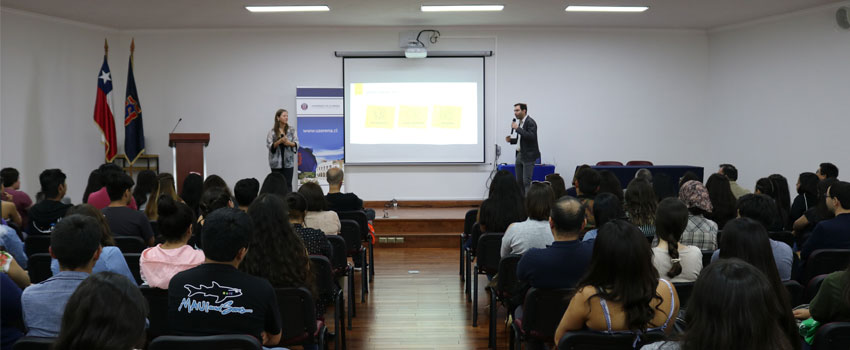
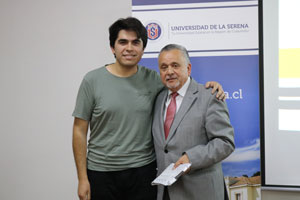 After this greeting, the Coordinator of the Choose Educar Accompaniment Program, María José Osimani, together with the Choose Educar Mathematics teacher, Ignacio Silva, gave the talk: “Everything You Need to Know to Study a Career in Education”, which He gave various advice when choosing which pedagogy to study. In addition, they provided information about the different educational institutions that offer these careers and the particular benefits that the State provides to pedagogy students.
After this greeting, the Coordinator of the Choose Educar Accompaniment Program, María José Osimani, together with the Choose Educar Mathematics teacher, Ignacio Silva, gave the talk: “Everything You Need to Know to Study a Career in Education”, which He gave various advice when choosing which pedagogy to study. In addition, they provided information about the different educational institutions that offer these careers and the particular benefits that the State provides to pedagogy students.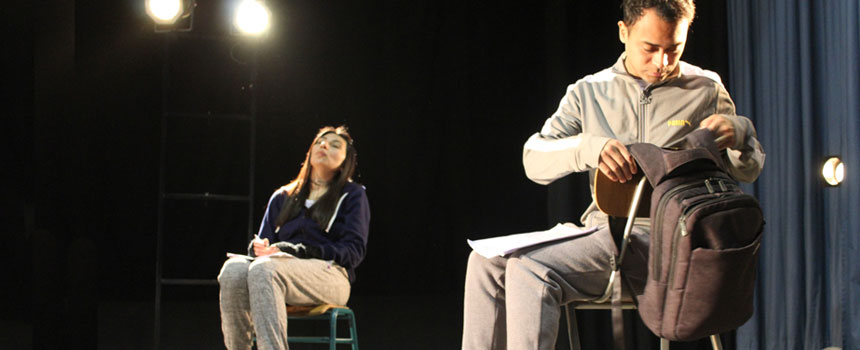
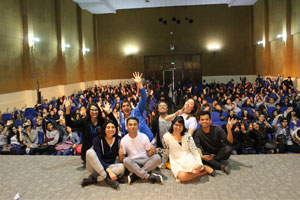 The activity was born in order to show the daily reality that the vast majority of adolescents experience when moving from secondary school to higher education, which is why the PACE ULS Program team made the decision to create a work of theater that will reflect this experience to the students attending the ULS Expo, channeled through the line of Participatory Projects of the Accompaniment in Higher Education (AES) area.
The activity was born in order to show the daily reality that the vast majority of adolescents experience when moving from secondary school to higher education, which is why the PACE ULS Program team made the decision to create a work of theater that will reflect this experience to the students attending the ULS Expo, channeled through the line of Participatory Projects of the Accompaniment in Higher Education (AES) area.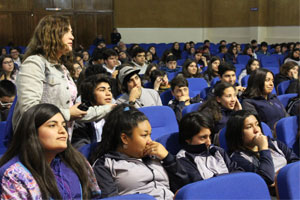 Meanwhile, the PEM Coordinator, Loreto Garrido, stated that the objective of the work “was to reach the more than 970 boys in a different way and for them to get to know themselves, for the students to realize that they do not They are alone in this situation; that this sea of questions is present in all his classmates and peers from other third and fourth grade educational establishments, the difficulty of facing the future after school; “We wanted to reach them in a different way and provide tools to find answers to these thousands of questions that they have every day and do not dare to ask.”
Meanwhile, the PEM Coordinator, Loreto Garrido, stated that the objective of the work “was to reach the more than 970 boys in a different way and for them to get to know themselves, for the students to realize that they do not They are alone in this situation; that this sea of questions is present in all his classmates and peers from other third and fourth grade educational establishments, the difficulty of facing the future after school; “We wanted to reach them in a different way and provide tools to find answers to these thousands of questions that they have every day and do not dare to ask.”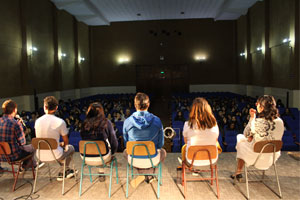 Regarding the work, the Coquimbo Region PACE Coordinator, Jocelyn Burgos, stated that “the experience has been super powerful, being able to participate in what happened here; Without a doubt, the design of this initiative has been very well thought out, I have seen the faces, the emotions of the students who have been deeply identified when seeing themselves reflected on the stage, many of them experienced and empathized with what was happening. Furthermore, this is what the PACE Program seeks, that the children see what is coming for their lives, their future, that they experience what it means to select a university career with conscience.”
Regarding the work, the Coquimbo Region PACE Coordinator, Jocelyn Burgos, stated that “the experience has been super powerful, being able to participate in what happened here; Without a doubt, the design of this initiative has been very well thought out, I have seen the faces, the emotions of the students who have been deeply identified when seeing themselves reflected on the stage, many of them experienced and empathized with what was happening. Furthermore, this is what the PACE Program seeks, that the children see what is coming for their lives, their future, that they experience what it means to select a university career with conscience.”